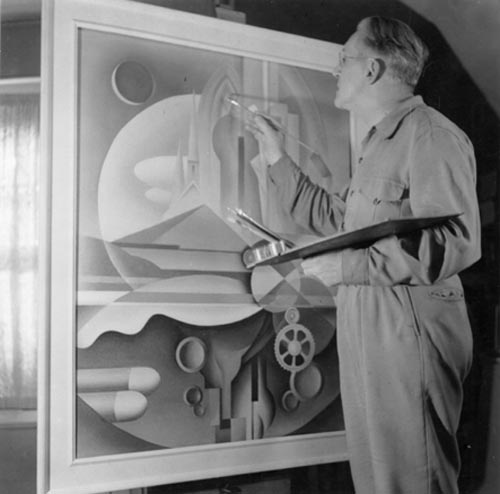Glamour of the Underfolk.
"There is so much heat in my heart, that Humanity cannot escape being scorched, no man shall escape the heat of my heart. [...] I am the overflowing scourge whom God has sent down to chasten the earth. [...] I am the champion of the Underfolk." (Brooker, 155-156)Unlike the majority of Canadian artists working in the first half of the twentieth century, Bertram Brooker wrote voluminously about his own work and that of his contemporaries, expounding and elaborating his aesthetic theories in different milieus. His attempt to articulate a peculiarly Canadian form of Modernism that could respond to the demands of his adopted nation frequently involved a mildly antagonistic engagement with the specifically English strains of Modernism, embodied, at least in his mind, by Wyndham Lewis, who he refers to as a pessimistic and reactionary humanist (Brooker, 215). And while the influence of Vorticism is clearly present in much of his work, and the critique of the Time Cult is also echoed, Brooker's answer to the issues which Lewis raised were very much his own.


